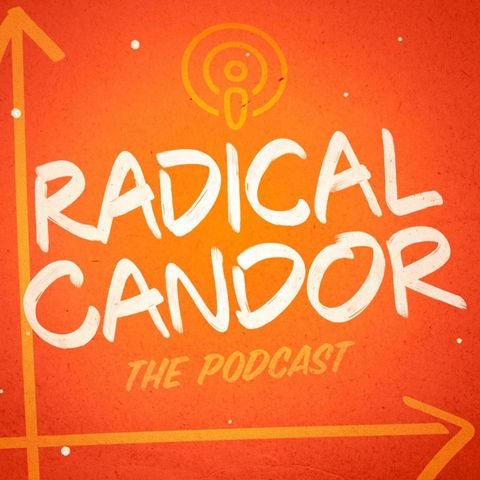18 SEP 2024 · How misguided praise can do more harm than good.
Praise can be powerful, but when it’s vague, generic, or something you can say to a dog like "good job," it can backfire and do more harm than good. Kim, Jason, and Amy explore the nuances of Ruinous Empathy and praise, sharing real-life examples, like the infamous FEMA response during Hurricane Katrina, to illustrate the pitfalls of Ruinously Empathetic feedback. They discuss the importance of making praise specific and sincere so people know what was good and why, allowing them to repeat their success.
Get all of the show notes at https://www.radicalcandor.com/podcast/ruinous-empathy-ruins-praise-6-36/.
Episode Links:
- https://www.radicalcandor.com/blog/praise-ruinous-empathy-story/
- https://www.radicalcandor.com/blog/tips-ruinous-empathy-praise/
- https://www.radicalcandor.com/podcast/s5-ep16-appreciation/
- https://www.radicalcandor.com/podcast/s4-mini-episode-1-the-bob-story-a-tale-of-ruinous-empathy/
- https://www.radicalcandor.com/podcast/how-to-apologize-6-22/
- https://en.wikipedia.org/wiki/DARVO
- https://www.linkedin.com/pulse/being-nice-instead-kind-one-biggest-mistakes-bosses-make-kim-scott/
Connect:
- https://www.radicalcandor.com/
- https://instagram.com/radicalcandorofficial
- https://tiktok.com/@radicalcandorofficial
- https://linkedin.com/company/radical-candor
- https://www.facebook.com/radicalcandor
- https://twitter.com/candor
- https://www.youtube.com/@RadicalCandor/podcasts
Chapters:
(00:00:00) Introduction
Kim, Jason, and Amy introduce the episode's focus on how praise can become ruinously empathetic.
(00:00:53) What Is Ruinous Empathy in Praise?
How praise can be ineffective when it's vague, insincere, or lacks specific feedback.
(00:02:19) Defining Praise vs. Criticism
What constitutes praise, how it differs from criticism and the dangers of insincere praise
(00:06:06) Effective Public Support and Praise
Guidance for leaders on how to support team members publicly after a mistake.
(00:11:51) Consequences of Praising Failure
Why offering praise after failure can be misleading and harmful.
(00:17:04) The Role of Specificity in Praise
The importance of specificity in making praise feel sincere and useful.
(00:22:11) Ruinous Empathy and Manipulative Insincerity
The nuances between ruinously empathetic praise and manipulatively insincere praise.
(00:33:07) Insincere Praise
Avoiding the common pitfalls of insincere praise in leadership and team management.
(00:36:53) Offering Effective Praise
Practical tips on how to offer specific and sincere praise that drives improvement.
(00:40:56) Radical Candor Tips
Tips for applying Radical Candor to praise, ensuring feedback is specific, sincere, and purposeful.
(00:42:18) Conclusion


